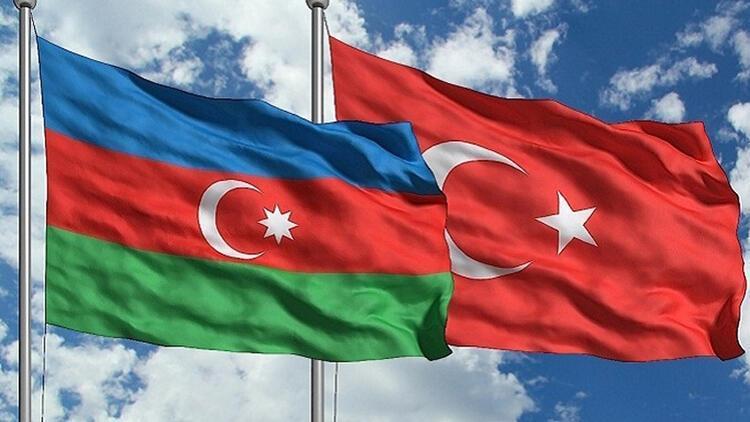
Azerbaijan's Foreign Ministry spokesperson on Sept. 11 voiced his country's foreign policy priorities at Azerbaijan's Embassy in Turkey.
Speaking in the capital Ankara on the occasion of the centennial anniversary of Azerbaijan's diplomatic service, Leyla Abdullayeva said Azerbaijan first gained its independence in 1918 -- which lasted 23 months only -- adding that the country regained its independence in 1991 after the collapse of the Soviet Union.
Azerbaijan granted women their electoral rights in 1918 -- much earlier than the Western countries -- and provided social rights to all its citizens "irrespective of their ethnic groups, religion, social status or gender," she said.
During a short term of independence one century ago, Azerbaijan managed to be at the forefront with its first opera, theaters and universities, while "this experience played a huge role in 1991 when Azerbaijan has regained its independence," she added.
She stressed that there could be "parallels in foreign policy priorities"of Azerbaijan in 1918 and 1991, adding that "priorities and challenges remain pretty much the same".
The spokesperson said that after declaring its independence, Azerbaijan's main priority was establishing "good mutually beneficial and equal partnership", and develop the cooperation with other countries, especially with the neighbors.
Noting that Turkey was the first country to recognize the independence of Azerbaijan, Abdullayeva said that the first-ever embassy of Azerbaijan also opened in Turkey in 1992.
"We have very good brotherly relations with Turkey," she said.
Country rich of natural resources
Abdullayeva underlined that the strength of the Azerbaijani foreign diplomacy lies beneath the "wise use" of rich energy resources and the country's open-door policy to Western investments.
Azerbaijan initiates projects which would allow it to transport the rich energy, oil and gas resources to Western markets, she said.
She also highlighted the partnership and strategic relations with Turkey and Georgia, which play crucial roles in transporting the energy resources to the Western markets.
The spokesperson also hailed the latest inaugurated transport rail route Baku-Tbilisi-Kars (BTK) among the projects which aim not only to develop and strengthen relations with the participating states, but also "further the sustainable development and bring in peace and prosperity to the wider region".
The 826-kilometer (513-mile) BTK railway project -- linking Turkey, Azerbaijan and Georgia -- entered into service in 2017.
Stressing Azerbaijan's contribution to Europe's energy security, Abdullayeva said her country is considered by the European partners "reliable partners who make huge contributions to the energy security".
For a country in a "very sensitive strategic location" at the crossroads of the East and the West and surrounded by the "big superpowers", it is very difficult to conduct and maintain independent policies, Abdullayeva said.
"Our main achievement as it is highlighted by our President Ilham Aliyev is to be able to conduct the independent policy," she added.
Participation in international organizations
Azerbaijan aims to actively participate within international organizations, the country's foreign ministry spokesperson said.
"We are really enlarging the geographical scope of our relationship," she said.
Azerbaijan is looking for the "horizons" to develop new partnerships and cooperations with international organizations such as the Association of Southeast Asian Nations (ASEAN), the African Union, the Shanghai Cooperation Organization or the organizations of Latin America.
The spokesperson noted that the country, which became a member of Non-Aligned Movement (NAM) in 2011, achieved in eight years to chair the platform movement, adding that Azerbaijan will take the chairmanship of NAM in October.
Azerbaijan's capital Baku is also set to host a two-day-summit meeting of the Turkic Council -- the Cooperation Council of Turkic Speaking States -- on Oct. 14, she added.
"We see it as real results and real achievements of our foreign policy," she said.
Abdullayeva also said that Azerbaijan is looking forward to deepening and strengthening the bilateral, as well as multilateral cooperation with the sovereign states.